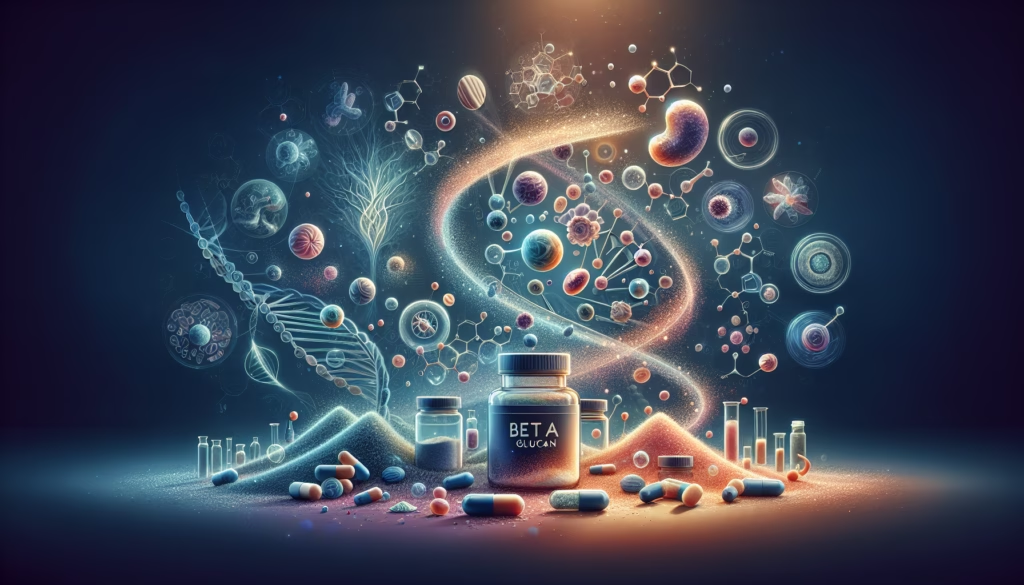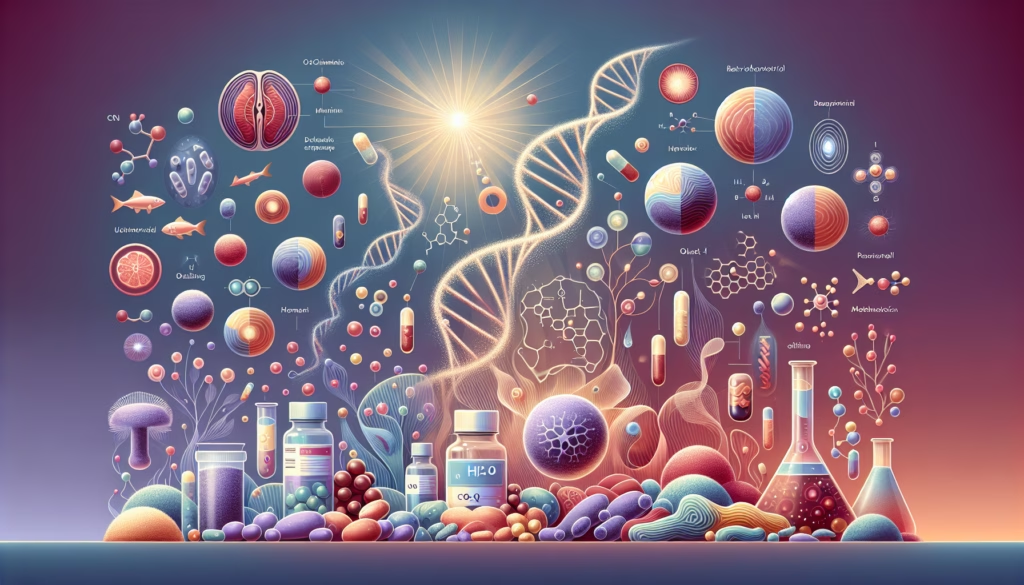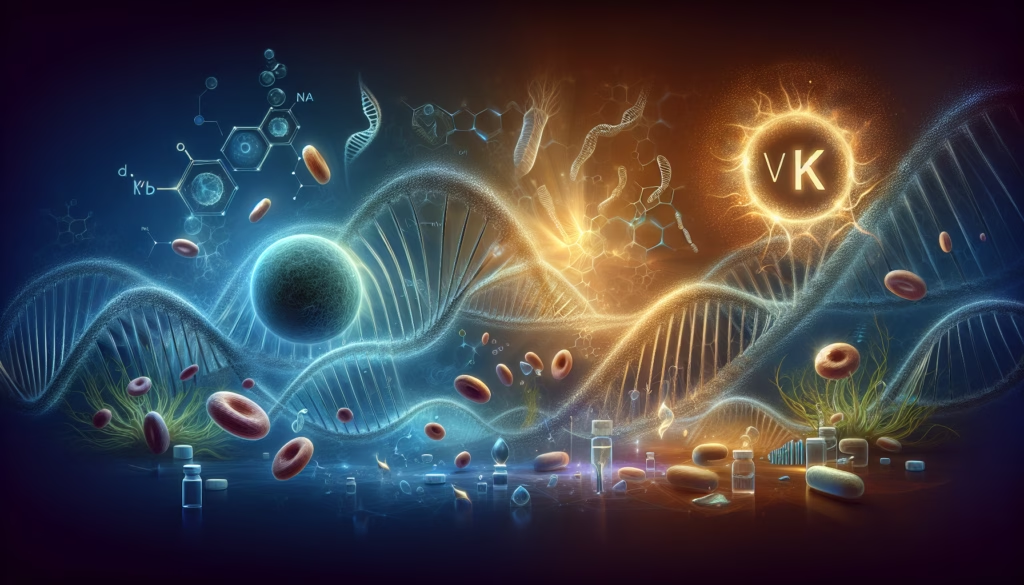
Beta Glucan
Discover the science-backed potential of beta glucan as an adjunct in cancer therapy. This post delves into the latest research
Click 
N-acetylcysteine (NAC) is an over-the-counter medication and dietary supplement known for its antioxidant properties. It is commonly used to alleviate symptoms of respiratory conditions such as cystic fibrosis and chronic obstructive pulmonary disease (COPD), as well as to counteract acetaminophen (paracetamol) overdose1.
A derivative of the amino acid L-cysteine, NAC has remarkable therapeutic potential. Its primary function involves replenishing intracellular glutathione, a tripeptide with potent antioxidant properties. Glutathione plays a crucial role in cellular defence against oxidative stress by neutralising reactive oxygen species (ROS) and maintaining cellular homeostasis.
Extensive research suggests that NAC’s potential anti-cancer properties stem from its ability to modulate various cellular processes, including:
It is crucial to emphasise that while NAC exhibits promising anti-cancer properties in preclinical studies, its direct application in cancer treatment requires further rigorous clinical validation to establish its efficacy and safety in human cancer warriors.
Regarding the metabolic theory of cancer: NAC’s role in modulating cellular redox balance aligns closely with the metabolic theory of cancer, which posits that metabolic dysregulation and oxidative stress are key drivers of cancer development and progression. By influencing these fundamental metabolic processes, NAC might indirectly impact cancer cell survival, proliferation, and overall tumour dynamics. This connection highlights the potential of NAC as a therapeutic agent that addresses the underlying metabolic alterations in cancer cells. However, its dual role as both an antioxidant and potential protector of cancer cells necessitates further research to optimize its use in cancer therapy.
General Use: For most conditions, a typical dosage range is between 600 mg to 1,800 mg per day, often divided into two or three doses14.
Higher Doses: Some studies have used doses up to 3,000 mg per day, which have been found to be safe for certain conditions like chronic respiratory diseases16.
Acetaminophen Overdose: In cases of acetaminophen overdose, NAC is administered intravenously with a total dose of 300 mg/kg, given over 21 hours in three separate doses3.
Excessive Doses: Taking more than 7 grams in a short period can lead to cell damage, kidney issues, or even death1.
Gastrointestinal Side Effects: Higher doses may cause gastrointestinal symptoms, but these are generally no more common than in control groups6.
It is important to consult a healthcare provider before starting NAC supplementation to determine the appropriate dosage for specific health conditions.
Breast Cancer, Lung Cancer, Ovarian Cancer
N-acetylcysteine (NAC) is generally well-tolerated at standard doses, but higher doses can increase the risk of side effects. Here are some common and less common side effects associated with NAC.
Gastrointestinal Symptoms: Nausea, vomiting, diarrhea, and stomach upset are common, especially with oral administration137.
Fatigue: Some individuals may experience fatigue when taking NAC1.
Eye Irritation: This can occur, particularly if NAC is inhaled1.
Allergic Reactions: Rarely, NAC can cause severe allergic reactions, including anaphylactic shock1.
Low Blood Pressure: Some individuals may experience hypotension1.
Increased Asthma Symptoms: Inhaling NAC can exacerbate asthma symptoms1.
Chest Tightness or Numbness: These symptoms can occur if NAC is inhaled1.
Haemolysis: Excessive doses can lead to red blood cell breakdown24.
Thrombocytopenia: Low platelet count is a risk with high doses24.
Kidney Failure: Acute renal failure has been reported in cases of overdose24.
Cerebral Oedema and Seizures: These are potential risks in severe overdose situations2.
Homocysteine Levels: NAC may increase homocysteine levels, potentially affecting cardiovascular health1.
Blood Clotting: NAC can slow blood clotting, which may be beneficial in some cases but poses risks for others1.
Interactions with Medications: NAC can interact with certain medications, such as immunosuppressants and antifungal drugs1.
It is crucial to consult a healthcare provider before starting NAC supplementation, especially if considering higher doses or if you are taking other medications.
Nitroglycerin and Streptokinase: NAC has been used in combination with nitroglycerin and streptokinase to treat acute myocardial infarction (AMI). This combination is safe and reduces oxidative stress, potentially improving reperfusion rates and preserving left ventricular function79.
Gefitinib: NAC has been shown to overcome resistance to gefitinib in non-small cell lung cancer (NSCLC) cells. The combination of NAC and gefitinib synergistically inhibits cancer cell growth by suppressing Src activation and reversing epithelial-mesenchymal transition4.
Bromelain: The combination of bromelain and NAC has demonstrated synergistic effects in inhibiting the growth and survival of gastrointestinal cancer cells. This combination may offer potential therapeutic benefits for cancer treatment5.
Antidepressants: NAC has been studied as an adjunct to certain antidepressants like imipramine and escitalopram. It can reduce the minimum effective doses of these drugs, potentially improving treatment outcomes for depression3.
Anticoagulant/Antiplatelet Drugs: NAC may enhance the effects of these medications, increasing the risk of bleeding6.
Activated Charcoal: Concurrent use may decrease the effectiveness of activated charcoal in preventing poisoning6.
Chloroquine: NAC might reduce the efficacy of chloroquine against malaria6.
These combinations highlight the potential of NAC to enhance or complement the effects of other drugs in various therapeutic contexts. However, careful consideration of potential interactions and side effects is necessary when combining NAC with other medications.
N-acetylcysteine (NAC) can have a positive impact on quality of life for individuals with various health conditions, primarily due to its antioxidant, anti-inflammatory, and mucolytic properties. Here are some ways NAC may improve quality of life:
Respiratory Conditions: NAC can improve lung function and reduce the frequency of exacerbations in conditions like chronic obstructive pulmonary disease (COPD) and bronchiectasis, enhancing respiratory health and overall quality of life157. For example, high-dose NAC has been shown to improve lung function measures and quality of life in bronchiectasis patients5.
Mental Health: NAC may help alleviate symptoms of mental health disorders such as bipolar disorder, depression, and obsessive-compulsive disorder (OCD), potentially improving mood and cognitive function24. This can lead to better emotional well-being and social functioning.
Detoxification and Antioxidant Effects: By reducing oxidative stress and enhancing glutathione levels, NAC can protect against cellular damage, which may contribute to improved overall health and well-being14.
Substance Use Disorders: Preliminary studies suggest that NAC can decrease cravings and use of substances like cannabis and nicotine, potentially improving quality of life for those struggling with addiction2.
While generally well-tolerated, NAC can cause gastrointestinal side effects like nausea and vomiting, which may temporarily affect quality of life. However, these effects are typically mild and manageable23.
In summary, NAC can improve quality of life by enhancing respiratory health, supporting mental well-being, and aiding in detoxification processes, although individual responses may vary based on specific health conditions and dosages used.
We’ve done our best to include as much information as possible for this supplement.
If you have any other questions, please send us a message or join our Skool Group and ask our knowledgeable and friendly community.
NAC is available for procurement through various channels, including health food stores, pharmacies, and online retailers. It can also be obtained as a prescription medication in certain clinical settings.
While N-acetylcysteine (NAC) is generally beneficial across various patient demographics, certain groups may experience more pronounced benefits due to specific health conditions or characteristics. Here are some patient demographics where NAC has shown effectiveness:
COPD Patients: NAC has been particularly effective in reducing the frequency of exacerbations in patients with chronic obstructive pulmonary disease (COPD), especially those without significant airway obstruction78. High doses (e.g., 1200 mg per day) are effective in reducing acute exacerbations, particularly in moderate disease8.
Patients with Inflammatory Bowel Disease: NAC has been shown to reduce relapse rates in patients with Crohn’s disease and ulcerative colitis when used alongside prednisolone tapering2.
HIV/AIDS Patients: NAC has been beneficial in reducing the decline of CD4 counts and TNF-alpha levels, potentially slowing cachexia and wasting in HIV/AIDS patients2.
Cocaine Use Disorder (CUD) Patients: While NAC did not significantly impact treatment adherence, it was associated with a longer stay in residential rehabilitation facilities for CUD patients1.
Cancer Patients: NAC may be beneficial in certain types of cancer, such as triple-negative breast cancer, by reducing ROS levels and enhancing chemotherapy efficacy36.
Age and Health Status: Older adults or those with compromised health may require careful monitoring due to potential interactions with other medications or underlying conditions.
Dosage and Duration: The effectiveness of NAC can depend on the dosage and duration of treatment. Higher doses may be more effective for certain conditions but should be used under medical supervision.
Overall, while NAC can be beneficial across a wide range of patient demographics, its effectiveness may vary based on specific health conditions and individual responses to treatment.
While N-acetylcysteine (NAC) is generally effective due to its antioxidant and mucolytic properties, there are several defence mechanisms and factors that can potentially inhibit its effectiveness:
NF-κB Activity: Although NAC can inhibit NF-κB activation, which is beneficial in reducing inflammation and oxidative stress, NF-κB also plays a role in immune responses. Over-inhibition of NF-κB can impair immune function, potentially reducing NAC’s effectiveness in contexts where immune activation is necessary134.
GSH Synthesis Limitations: NAC works by increasing glutathione (GSH) levels. However, if the cellular machinery for GSH synthesis is impaired or if there is a deficiency in other amino acids required for GSH synthesis (like glutamate or glycine), NAC’s effectiveness might be limited1.
Redox State Alterations: NAC can alter the cellular redox state, which is generally beneficial. However, in certain contexts, this alteration might not be favourable, potentially inhibiting NAC’s effectiveness if the redox balance is critical for specific cellular functions3.
Biofilm Formation: While NAC can disrupt biofilms, some bacteria may develop resistance mechanisms that reduce its effectiveness. For example, biofilm architecture changes or increased polysaccharide production could counteract NAC’s antibiofilm effects2.
Immune Modulation: NAC can modulate immune responses by inhibiting dendritic cell activation and cytokine production, which might be beneficial in reducing inflammation but could also impair immune responses in certain situations3.
While NAC is effective in many contexts, its efficacy can be influenced by various biological and biochemical factors. Understanding these mechanisms is crucial for optimizing NAC’s use in different therapeutic scenarios.
A substantial body of preclinical research has investigated NAC’s potential in various cancer models, yielding insights into its mechanisms of action and therapeutic potential. Studies have demonstrated NAC’s role in inducing apoptosis, inhibiting cell proliferation, and enhancing the effects of other therapeutic agents.
For the most current and comprehensive information on active clinical trials involving NAC, please refer to ClinicalTrials.gov for up-to-date details on trial phases, objectives, and recruitment status for studies investigating NAC in various contexts, including cancer research.
While specific genetic markers that universally inhibit the efficacy of N-acetylcysteine (NAC) have not been widely identified, there are instances where genetic variations can influence how individuals respond to NAC treatment. Here are some examples:
TOLLIP Gene in Idiopathic Pulmonary Fibrosis (IPF): A study found that the rs3750920 TT genotype in the TOLLIP gene is associated with a positive response to NAC therapy in IPF patients, whereas those with the CC genotype may experience a trend toward harm2. This suggests that genetic variations can affect the efficacy and safety of NAC in specific conditions.
General Antioxidant Response: The effectiveness of NAC in replenishing glutathione levels and mitigating oxidative stress can be influenced by genes involved in the antioxidant defence system, such as those regulated by the transcription factor Nrf23. Variations in these genes might affect how well an individual responds to NAC’s antioxidant properties.
Other Potential Interactions: While not directly identified as genetic markers that inhibit efficacy, variations in genes related to drug metabolism or transport could theoretically influence how NAC is processed and utilized in the body. However, specific genetic markers for such interactions have not been widely reported.
In summary, while there are no broadly recognized genetic markers that universally inhibit NAC efficacy, specific genetic variations can influence the response to NAC in certain conditions, such as IPF. Further research is needed to fully understand how genetic factors impact NAC’s effectiveness across different health contexts.

Discover the science-backed potential of beta glucan as an adjunct in cancer therapy. This post delves into the latest research

Explore the emerging world of hydrogen gas (H₂), also known as Brown Gas, and its remarkable potential as an adjunct

Explore the latest scientific insights into vitamin K2 and its promising role in cancer therapy. In this comprehensive blog post,
Apoptosis, or programmed cell death, is a natural process where cells self-destruct when they are damaged or no longer needed. This is crucial for maintaining healthy tissues and preventing diseases like cancer.
Drugs and supplements that induce apoptosis help eliminate cancerous cells by triggering this self-destruct mechanism, ensuring that harmful cells are removed without damaging surrounding healthy tissue.
Understanding and harnessing apoptosis is vital in the fight against cancer, as it targets the root cause of the disease at the cellular level.
Cell proliferation is the process by which cells grow and divide to produce more cells. While this is essential for growth and healing, uncontrolled cell proliferation can lead to cancer.
Drugs and supplements that inhibit cell proliferation help prevent the rapid multiplication of cancerous cells, slowing down or stopping the progression of the disease.
By targeting the mechanisms that drive cell division, these treatments play a vital role in controlling and potentially eradicating cancer.
Cancer cells often hijack specific biological pathways to grow and spread. Drugs and supplements that target these pathways can disrupt the cancer cell’s ability to survive and multiply.
By focusing on the unique mechanisms that cancer cells use, these treatments can be more effective and cause fewer side effects compared to traditional therapies.
Targeting specific pathways is a key strategy in precision medicine, offering a tailored approach to combat cancer at its core.
Angiogenesis is the process by which new blood vessels form, supplying nutrients and oxygen to tissues. Cancer cells exploit this process to fuel their growth and spread.
Drugs and supplements that inhibit angiogenesis can effectively starve cancer cells by blocking the formation of these new blood vessels.
By cutting off the supply lines that tumors rely on, angiogenesis inhibitors play a crucial role in controlling and potentially shrinking cancerous growths.
Immunotherapy harnesses the power of the body’s immune system to combat cancer. By boosting or restoring the immune system’s natural ability to detect and destroy cancer cells, immunotherapy offers a targeted and effective approach to treatment.
Drugs and supplements that support immunotherapy can enhance the immune response, making it more efficient at identifying and attacking cancer cells.
This innovative approach not only helps in treating cancer but also reduces the risk of recurrence, providing a powerful tool in the fight against this disease.
Inflammation is the body’s natural response to injury or infection, but chronic inflammation can contribute to the development and progression of cancer.
Drugs and supplements with anti-inflammatory properties help reduce inflammation, thereby lowering the risk of cancer and other chronic diseases.
By targeting the inflammatory processes, these treatments can help maintain a healthier cellular environment and prevent the conditions that allow cancer to thrive.